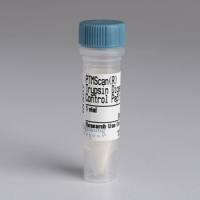P11: A Potential Biomarker for Posttraumatic Stress Disorder
互联网
互联网
相关产品推荐

Recombinant-Bovine-Short-transient-receptor-potential-channel-5TRPC5Short transient receptor potential channel 5; TrpC5
¥9744

Caspase 6/P18/P11 多克隆抗体 10198-1-AP
¥1350

Recombinant-Thermosynechococcus-elongatus-Iron-stress-induced-chlorophyll-binding-proteinisiAIron stress-induced chlorophyll-binding protein Alternative name(s): CP43'
¥11956

ZMYM2/ZMYM2蛋白Recombinant Human Zinc finger MYM-type protein 2 (ZMYM2)重组蛋白(Fused in myeloproliferative disorders protein)(Rearranged in atypical myeloproliferative disorder protein)(Zinc finger protein 198)蛋白
¥1836

Small Cell Lung Cancer Biomarker Antibody Sampler Kit
¥500
相关方法

